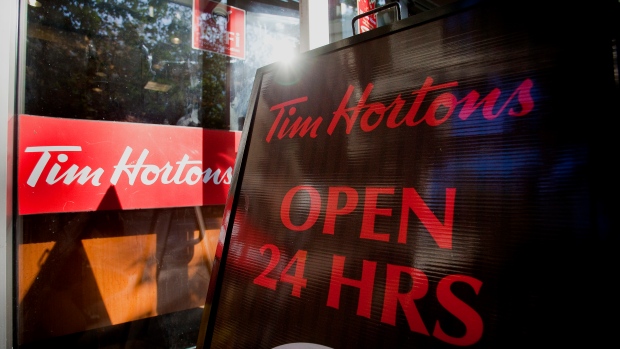Feb 11, 2019
Tim Hortons' brand recovery 'significant' after franchisee fallout, president says
BNN Bloomberg

The president of Tim Hortons Inc. said the coffee-and-doughnut chain’s brand has recovered after taking a hit from frayed relations with franchisees.
“I think we’ve experienced a significant amount of brand recovery,” Alex Macedo said in an interview with BNN Bloomberg Monday, citing a recent Ipsos poll, which ranked Tim Hortons in the top 10 most influential brands.
“I think it’s based on two things: really listening to our guests, and communicating with them in the way that they want to listen.”
The relationship between Tim Hortons, its parent company Restaurant Brands International Inc., and some of its restaurant owners, has been strained over the last couple of years. They have battled over everything from cost-cutting measures amid Ontario’s minimum wage hike under the previous government, to a class-action lawsuit over the company's alleged improper use of a $700-million national advertising fund.
Last week, Tim Hortons and the Great White North Franchisee Association, a group that represents some of the franchisees, said they were close to reaching a settlement in two class-action lawsuits the group filed against the chain.
“The work that we’re doing with the franchisees, and adjusting the message and adjusting the products, and how we execute at the restaurant level – I can’t underestimate how important that is for how we’re performing,” Macedo said. “The franchisees are a huge part of this.”
Macedo added that Tim Hortons hasn’t had trouble bringing on new franchisee owners amid the tension, and has had better support from the franchisee community than at any other time since the chain was acquired by Restaurant Brands International.
“I think a good franchise is like a family,” Macedo added. “At the end of the day we sit at different chairs but on the same side of the table.”
Tim Hortons continued to lead the way for Restaurant Brands in the company’s fourth quarter as sales and profit at the Canadian division of the chain rose. The company said comparable sales at its Canadian Tim Hortons locations grew 2.2 per cent for the quarter ended Dec. 31, 2018 – marking the strongest growth in the last 10 quarters.
Macedo attributed the chain’s recent momentum to having “consumer-driven innovations” like a new line of baked goods around the holidays, real-life stories in its ads, and new beverage offerings like its Hershey hot chocolate.
Restaurant Brands, which is also the parent of Burger King and Popeyes Louisiana Kitchen, reported $163 million in profit attributable to common shareholders in the fourth quarter, compared with $395 million in the same quarter a year earlier.
With files from the Canadian Press




